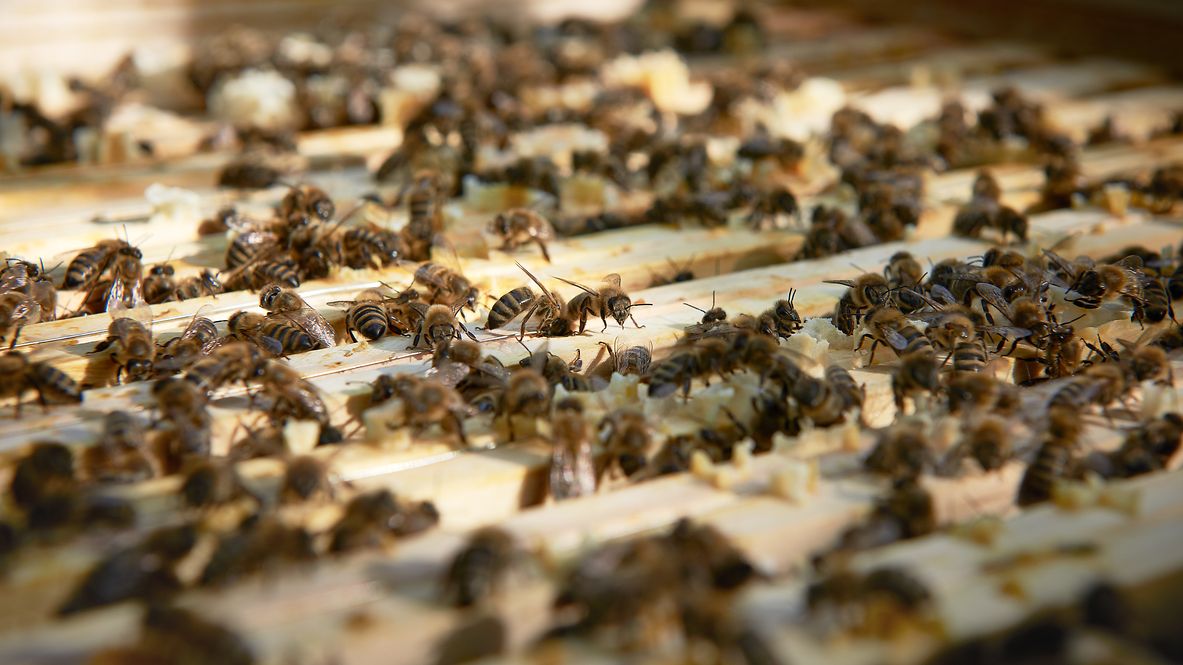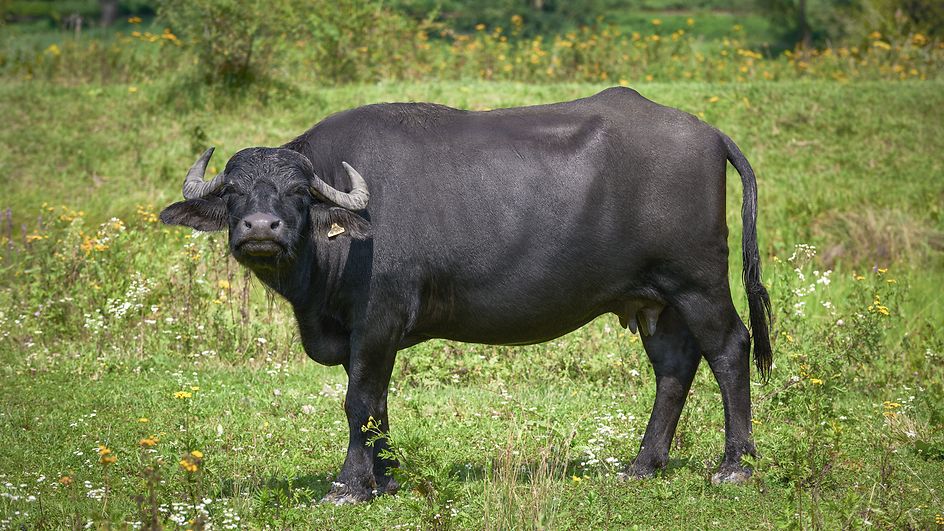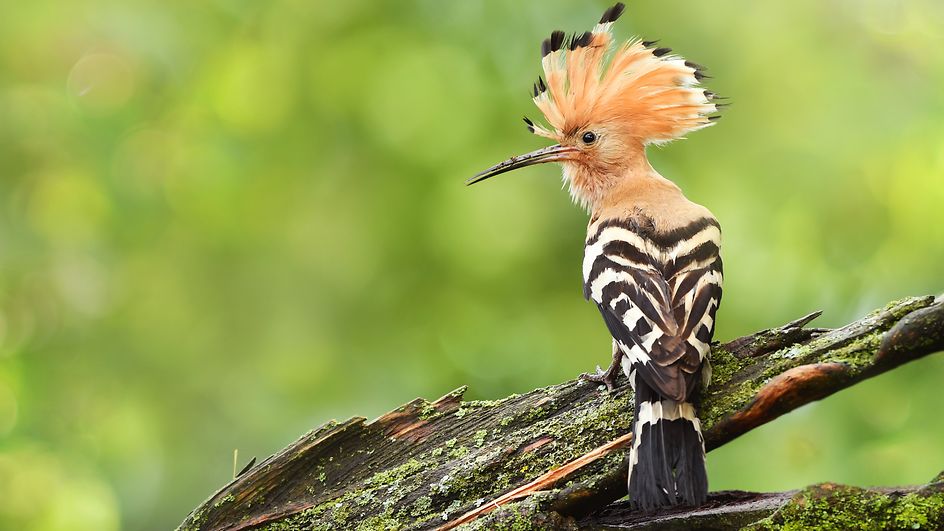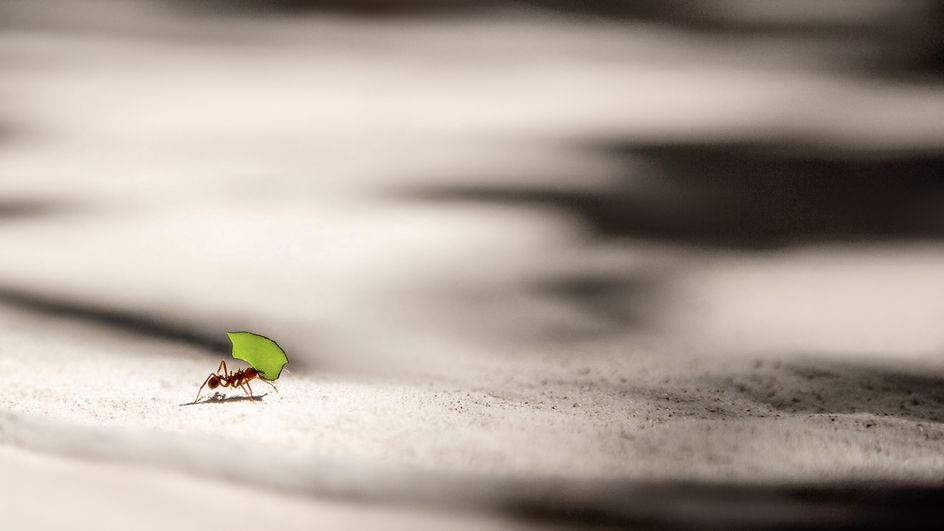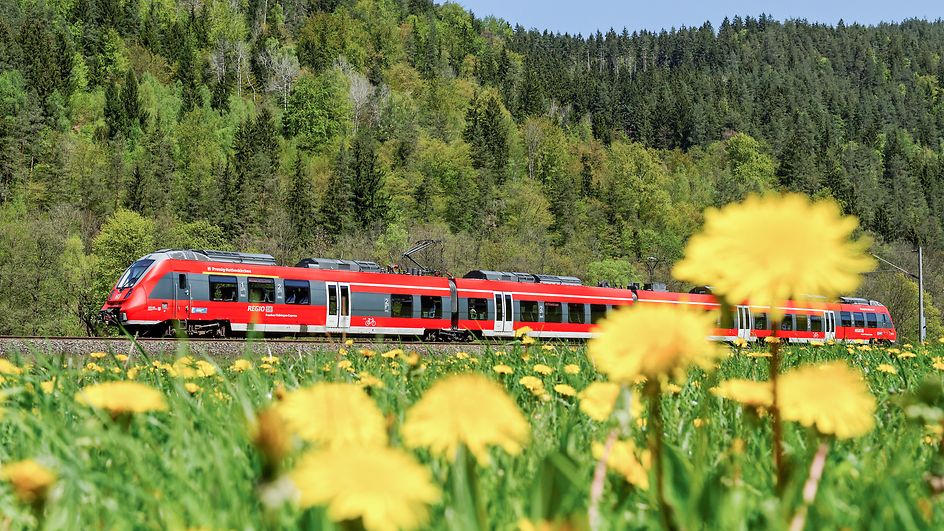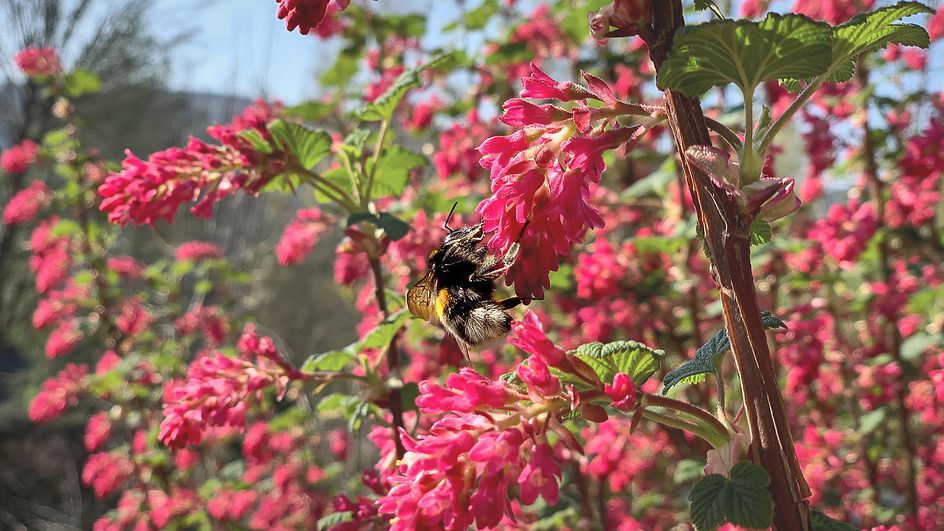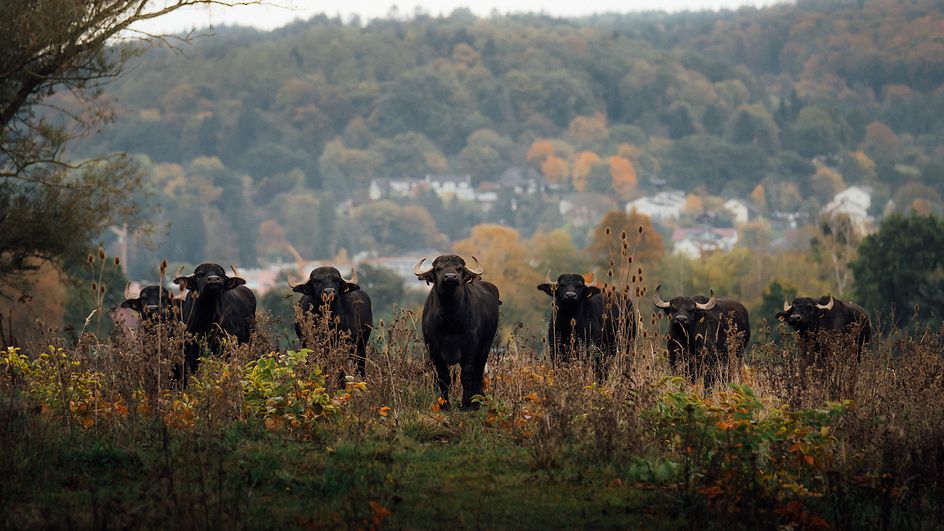Deutsche Bahn is committed to biodiversity and the protection of honeybees and wild bees. As part of this effort, DB has provided areas to beekeepers free of charge, where millions of honeybees can find food.
You can taste the result. The “Gleisgold” honey is available in the bahnshop (only available in German).
Habitat and food for endangered wild bees
But Deutsche Bahn is not only committed to preserving honeybees. So-called arks for wild bees have been set up at selected railroad stations. These arks resemble a raised bed and consist of two parts: One of the boxes is filled with a sand and clay mixture, dead wood and insect nesting aids. Here, the wild bees find ideal conditions for building their brood nests. The second box provides food for the animals with regionally occurring wild shrubs.
Hundreds of wild bee species live in Germany alone, including bumblebees. They are considered a particularly endangered species and are essential for the ecosystem. With the arks, DB is creating a kind of "life raft" for them - but also for many other insects. The arks can be found in Baden-Württemberg at the stations in Asperg, Fellbach, Marbach and Leonberg, among others. They were built by Samariterstiftung Behindertenhilfe Ostalb as part of the "DAS TUN WIR" initiative.

